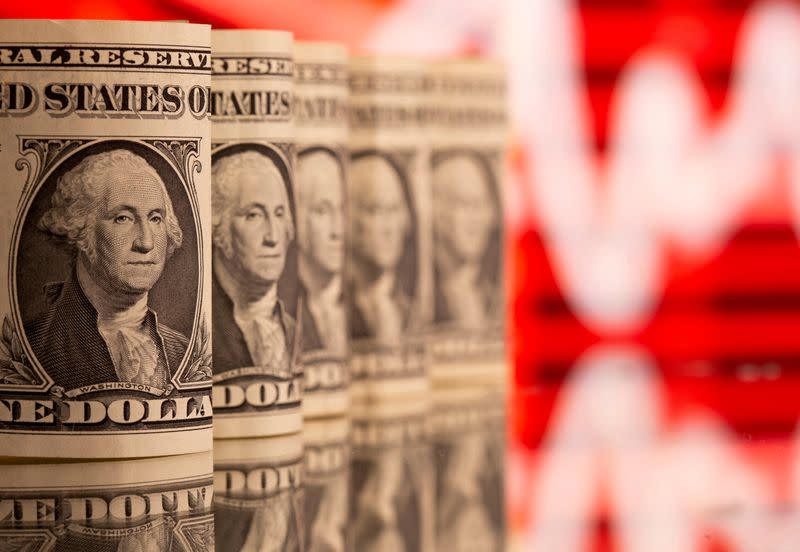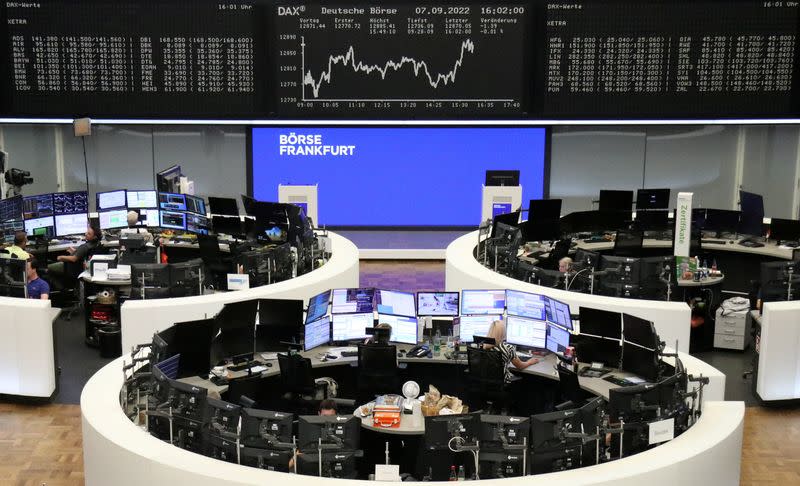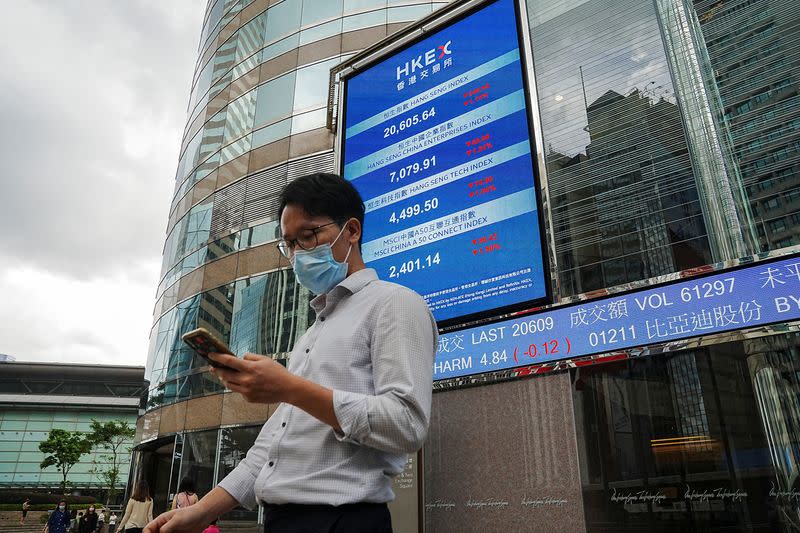Stocks, bond yields rise after record ECB rate hike, Powell comments
By Caroline Valetkevitch
NEW YORK (Reuters) - Global stocks and government bond yields rose on Thursday after the European Central Bank raised interest rates by a record 75 basis points and Federal Reserve Chair Jerome Powell said the U.S. central bank was "strongly committed" to controlling inflation.
The ECB also signalled further hikes to fight inflation, even as the bloc's economy is heading for a likely winter recession.
Euro zone government bond yields jumped in the wake of the ECB news. Benchmark 10-year Treasury note yields rose following Powell's remarks and were last at 3.32%. last at when?
The U.S. 10-year yields have risen from a four-month low of 2.516% on Aug. 2, but are holding below the 11-year high of 3.498% reached on June 14. Two-year yields increased four basis points to 3.491%.
In currencies, the dollar gained versus the yen on Powell's hawkish stance, while sterling fell against the dollar after Queen Elizabeth, Britain's longest-reigning monarch and the nation's figurehead for seven decades, died.
At a Cato Institute conference, Powell also said inflation can be controlled without the "very high social costs" involved previously.
Worries that central banks will remain hawkish and inflation will remain persistently high has sent government bond yields higher globally in recent weeks.
Wall Street stocks initially fell in the wake of his remarks but then reversed course to end with solid gains, helped by rate-sensitive banks and healthcare company shares. The S&P 500 bank index jumped 2.8%.
"It was a volatile session. But the key point is that we're holding onto yesterday's gains in lieu of the fact that the ECB raised its rates by 75 basis points and obviously took a very hawkish stand on fighting inflation, and we heard the same (hawkish) commentary from Mr. Powell this morning," said Peter Cardillo, chief market economist at Spartan Capital Securities in New York.
"There was nothing new" in Powell's comments, he said. "It's a known fact that the central banks are inducing a global recession. The question is will it be a steep one or a mild one. My guess is it will be a mild one."
The Dow Jones Industrial Average rose 193.24 points, or 0.61%, to 31,774.52, the S&P 500 gained 26.31 points, or 0.66%, to 4,006.18 and the Nasdaq Composite added 70.23 points, or 0.6%, to 11,862.13.
Banks also led European stocks higher. The pan-European STOXX 600 index rose 0.50% and MSCI's gauge of stocks across the globe gained 0.76%.
Chicago Fed President Charles Evans also said on Thursday that getting high inflation down is "job one," and to do so the Fed could raise interest rates by another 75 basis points this month.
Fed officials are heading into a blackout period before their Sept. 20 to 21 meeting, when they are expected to raise the fed funds rate by another 75 basis points, increasing it to 3.0% to 3.25%. to or from?
"It's important to remember the lesson we all learned years ago, and that's don't fight the Fed," said Oliver Pursche, senior vice president at Wealthspire Advisors in New York. "And the Fed is telling us that they're laser-focused on inflation."
In afternoon New York trading, the dollar rose 0.1% to 143.96 yen, climbing in nine of the last 10 sessions. On Tuesday, it surged to a 24-year peak of 144.99 yen.
The euro dropped 0.1% to $0.9994.
The yen has been a victim of recent dollar strength, as the Bank of Japan remains the lone dovish central bank.
Sterling was last trading at $1.1502, about flat on the day.
Crude prices edged up about 1% after dropping to a seven-month low in the prior session.
Brent futures rose $1.15, or 1.3%, to settle at $89.15 a barrel, while U.S. West Texas Intermediate (WTI) crude CLc1 rose $1.60, or 2.0%, to settle at $83.54.
(Additional Reporting by Marc Jones in London and Stephen Culp and Karen Brettell in New York; Editing by Mark Porter, Richard Chang and Josie Kao)



